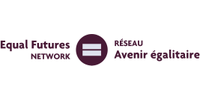Event Details
Consultez cette page d'inscription en français en sélectionnant votre langue préférée en haut à droite de cette page.
Date: Thursday, November 3rd
Time: 1:00 pm to 2:30 pm EST
Around the world, women, in all of their diversity, perform the most underappreciated work, earn less than cis-gender men, do more unpaid and care work resulting in them bearing the brunt of the widening wealth gap. The COVID-19 pandemic has further exacerbated these issues creating an unprecedented economic crisis which has hit the poorest, most vulnerable and marginalized communities the hardest. According to the United Nations, "the economic and financial shocks associated with COVID-19 (...) are derailing the already tepid economic growth and compounding heightened risk factors". In particular, women, racialized (Indigenous, Black and people of colour (IBPoC)) and 2SLGBTQ+ communities are the most at risk to experiencing the effects of a global recession and are already at a place of disadvantage due to existing systemic barriers to equitable participation in the global economy. While there has been some progress towards achieving UN Sustainable Development Goal 8 - decent work and economic growth - the economy is still deeply gendered and there is critical work that needs to be done in order for women, two-spirit, gender-diverse, LGBTQ+ and IBPOC communities to achieve their full potential.
On November 3, from 1-2:30 pm ET, join the Equal Futures Network for an interactive virtual incubator session to unpack some of the key challenges facing women, gender-diverse and racialized communities when it comes to advancing economic justice. Incubator sessions create space that eliminates industry silos and regional disconnect while fostering dialogue and partnerships to advance gender equity. Participants will hear insights from practitioners, industry leaders and researchers about key areas towards economic justice for diverse communities in Canada and around the world. Then, participants will have the opportunity to share their insights on the issues, challenges and obstacles that create barriers towards achieving economic justice from their lived experience and work in breakout rooms. Advancing economic equity will require a substantive shift from the status quo, addressing systemic and structural challenges with women, two-spirit, gender-diverse, LGBTQ+ and IBPOC communities leading the way.

